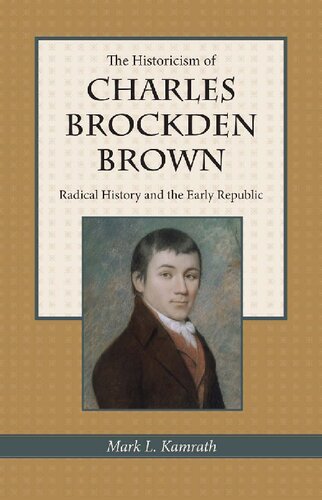

Most ebook files are in PDF format, so you can easily read them using various software such as Foxit Reader or directly on the Google Chrome browser.
Some ebook files are released by publishers in other formats such as .awz, .mobi, .epub, .fb2, etc. You may need to install specific software to read these formats on mobile/PC, such as Calibre.
Please read the tutorial at this link: https://ebookbell.com/faq
We offer FREE conversion to the popular formats you request; however, this may take some time. Therefore, right after payment, please email us, and we will try to provide the service as quickly as possible.
For some exceptional file formats or broken links (if any), please refrain from opening any disputes. Instead, email us first, and we will try to assist within a maximum of 6 hours.
EbookBell Team

4.1
90 reviewsA new perspective on the cultural politics of Charles Brockden Brown
The novels of Charles Brockden Brown, the most accomplished literary figure in early America, redefined the gothic genre and helped shape some of America’s greatest writers, including Herman Melville, Edgar Allan Poe, and Nathaniel Hawthorne. However, little has been said about the latter years of Brown’s career. While his early novels are celebrated for their innovative and experimental style, Brown’s later historical narratives are often dismissed as uninteresting, and Brown himself has been accused of having become “a stodgy conservative.”
Through a re-examination of these neglected historical writings, Mark L. Kamrath takes a fresh look at Brown’s later career and his role in the cultural politics of the early national period. This interdisciplinary study uses transatlantic historical contexts and recent narrative discourse to unveil Brown’s philosophic inquires into the filiopietistic tradition of historiography and increasingly imperialistic notion of American exceptionalism. It recovers a forgotten debate―and radical position―about the nature of historical truth and representation and opens up for contemporary discussion what it means to write about the past.